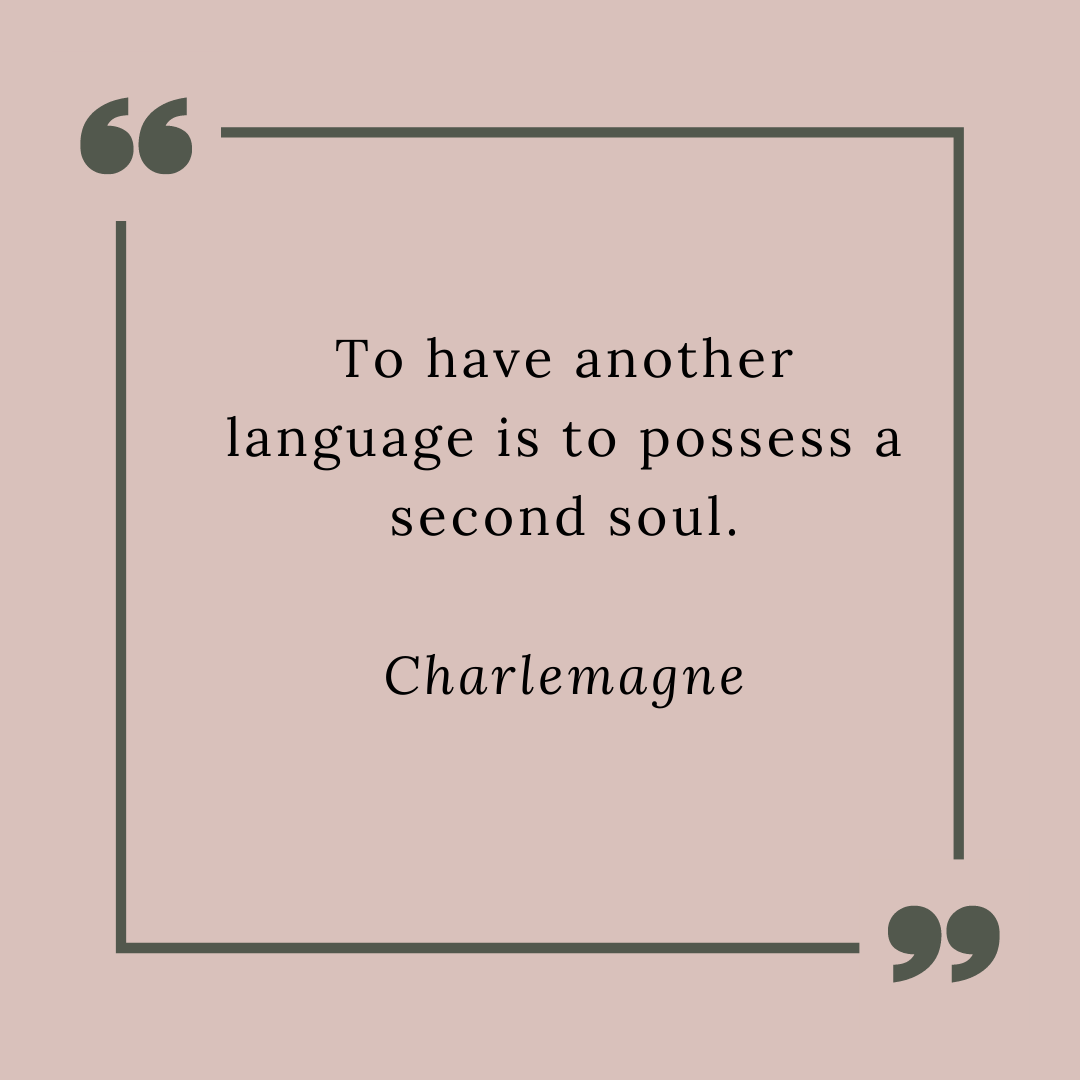
Charlemagne was right...
Speaking in a second... or third... language is different from speaking in your native tongue.
Even when your words are clear--at least most of the time, you may still struggle with conveying your message with the nuance that is created through the unique voice, intonation, and linguistic patterns of a language. Body language, eye contact, facial expression... can also be factors in getting your message and intention across effectively and making the kind of impact you desire. Diverse cultures may even tell stories, present, and make small talk differently.
Context is key. If you are working in the U.S. OR internationally, where English is the dominant language for business (debatable equity issue), you may be challenged by confidence issues with regard to your English communication-for example, when presenting to groups. The issues can also contribute to hesitance in speaking up, being as bold as you wish to be, or pursuing certain challenges.

The relationship we have to our own voice is unique.
Our language, speech, and voice run deep. They shape our perceptions of the world, how we identify ourselves, who we tell the world we are, and how we do it. Your essence, character, and unique talents may be harder to communicate in a second language due to the challenge with developing a more organic, comfortable connection to your English-speaking self.
Expressing ourselves in a different language can be tricky. Subtleties in meaning and overall impression can be lost due to all of the factors mentioned above. If the Waltz is the only dance you know, and you bring that feeling and character into your Salsa dancing... there can be some loss in translation!
Speech is physical, mental, psychological... Connecting more organically and confidently to the sounds and other components of a language to express ourselves to the world is freeing and empowering. It also takes the right mindset.
Click here to learn more about
the right MINDSET for speaking English.
If you're interested in investigating these issues, join me for my free online classes/workshops, which I offer about every 2 months. Connect with me here on LinkedIn so that you'll get the announcements in your feed OR subscribe to my newsletter so that you don't miss the dates and can plan ahead. Find out if the approaches I teach may have a significant impact on the way you connect to your words, sound, and self-expression. Based on my experience with working with non-native speakers for over the past 25 years, I know that addressing them can have a huge impact on a person's sense of control, well-being, even mental health-as well as professional success.
Speaking of professional success... Don't be afraid to approach your HR, manager, team lead, etc. about these issues. Professional development SHOULD cover these types of issues. Open up the conversation...
For a free pdf and audio download on "How to become a more dynamic speaker in English" go to Contact page and write "Dynamic."
To learn more about the group class, go here! :)
English as a second language, confidence, fluent, speaking, professional, communication
